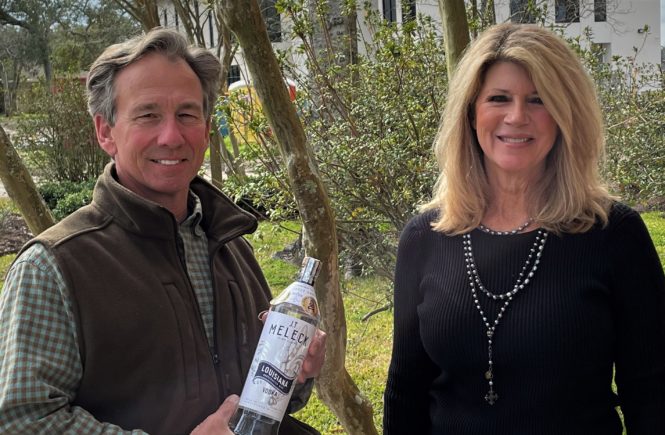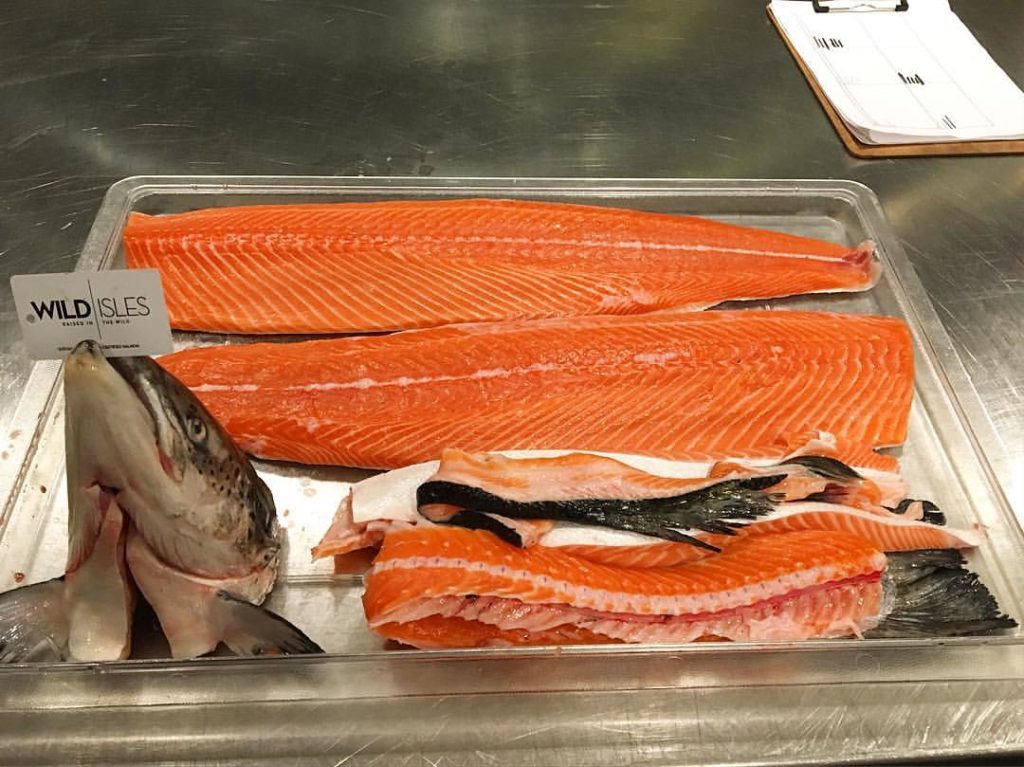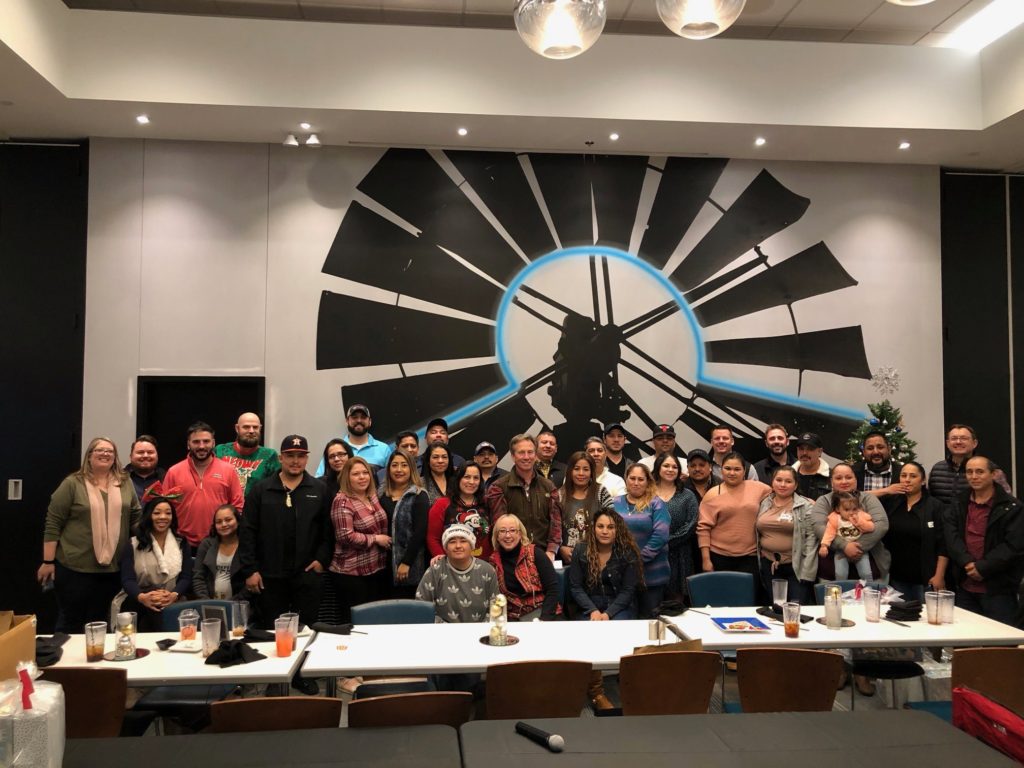Podcast: Play in new window | Download (Duration: 57:59 — 79.6MB)
Mike Fruge, founder and owner of JT Meleck Distillers, joined Discover Lafayette to discuss the evolution of his family’s farming business and what led him to create award-winning vodka from rice.
Mike has a great story to tell, one which not only captures the tenacity of our Louisiana farmers but also one of an entrepreneurial spirit that has led him to continue to evolve his farming operations to eke out all he can from the land. In this podcast, we celebrate that precious food commodity which our South Louisiana culture revolves around: rice. We also celebrate the tenacity of our Louisiana farmers which is exemplified by our guest.
Mike Fruge is a rice and crawfish farmer along with his brother, Mark, and he descends from a long line of rice farmers in Acadia Parish. He grew up in Branch, LA on the family rice farm founded by his great, great uncle, John “JT” Meleck, who started growing “Providence Style” rice in 1896.
John Meleck originally migrated to Louisiana from the Midwest right after the Civil War years in search of cheap land. It took the family two years to complete the trek to Louisiana by covered wagons. After learning the hard way that corn and other commodities didn’t grow in Louisiana as well as they had in the Midwest, Meleck started growing what was called “Providence style rice:” the rice was planted on low-lying bottomland which depended on Mother Nature to provide the rainwater which would seep down from the higher ground to nourish the crop. Meleck’s rice farm joined many other rice industry operations which took off around the turn of the 20th century.
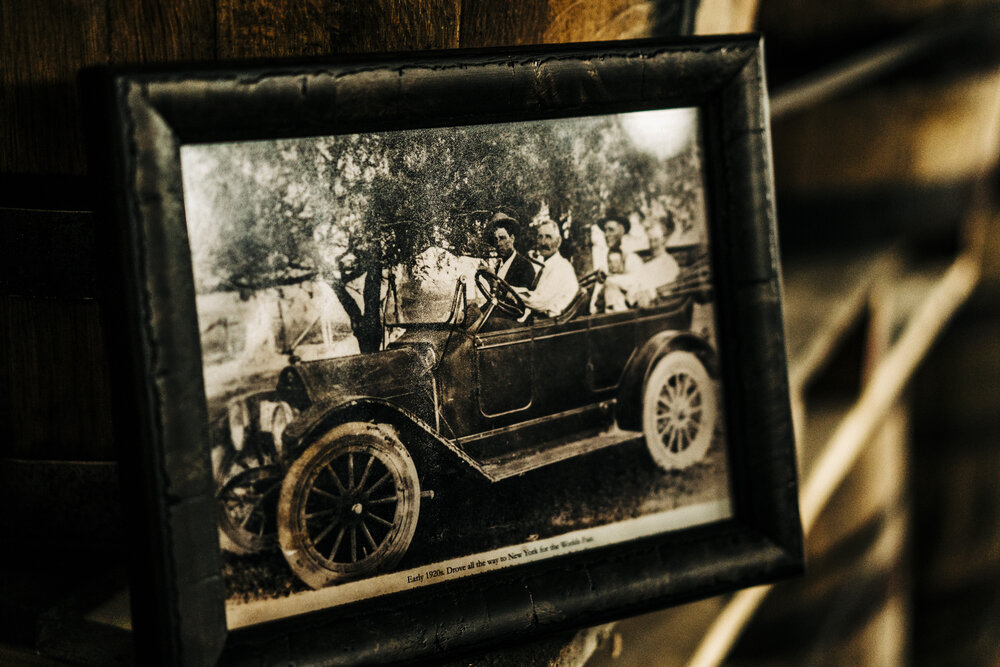
Fast forward to the 1980s, when Mike and his brother, Mark, were among the first to enter the aquaculture industry. At that time, most crawfishing was considered a hobby and there weren’t many commercial crawfish farms. Fruge Farms was one of the first to convert to 100% crawfish farming as a way to make a living while preventing their rice fields from being depleted. As Mike says, “We weren’t the first, but we were pioneers.” The terrain of Southwest Louisiana provides ideal growing conditions as the production requires flatlands that can be easily flooded and now almost all rice farmers are also crawfishermen. Today, Fruge Aquafarms is a thriving rice and crawfish farm that has grown to roughly 4000 acres.
With the initial growth of his aquaculture endeavor, Mike looked for a market and took to the road in his pickup to find buyers. He began selling his crawfish product in Dallas in 1989 and had to educate the market on how to prepare the crawfish with which they were unfamiliar. “My timing was a little early!” he said.
Today that pickup truck in which he personally delivered crawfish has grown into Dallas-based Fruge Seafood Co. which is a regional wholesale distributor of fine seafood in Louisiana, Texas, and Oklahoma. Its #1 top seller is salmon and the company specializes in upscale fish choices for fine dining experiences. Mike is a conservative businessman who learned through the school of hard knocks how to stay profitable, without going to outside investors, while keeping this family business afloat. “Coming of age in the oilfield in the 1980s, I can’t describe how bad things were. 20% of the population literally left the area. I never wanted to borrow money unless it was absolutely necessary. We’ve been very conservative and our risks were calculated.”
About 10 to 15 years ago, Mike started wondering how his fourth-generation farming business was going to look like moving into the future, and how he could continue to add value to the rice crop so he would have something valuable to pass on to his family. “In today’s marketplace for farming, if you’re not thinking about innovation, you’re probably not going to be farming much longer. Farms are getting bigger and there are fewer and fewer farmers.”
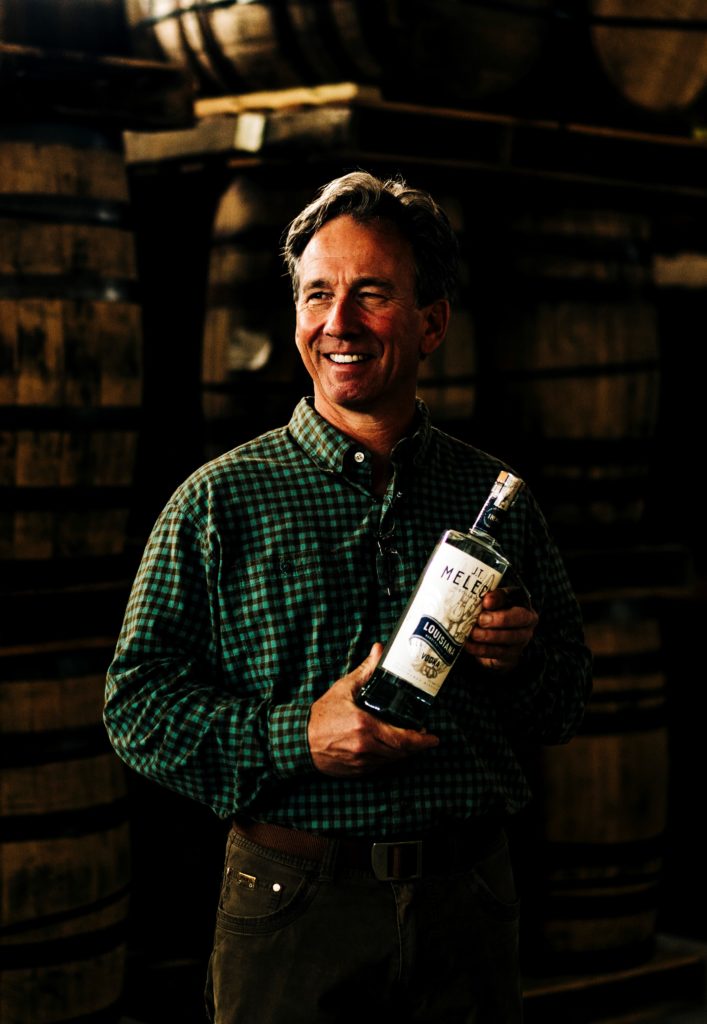
Mike was brainstorming with a group at one point and someone asked, “I wonder if you can make vodka from rice??” While Mike didn’t know, he was determined to find out. Six weeks later he signed up for a craft distillery conference where he met with other craftsmen. But no one there knew how to make vodka from rice either.
It took Mike and his team about six months to figure out the process for making vodka, which he explains is similar to how all spirits are distilled. First, the grain is cooked in a “mash tun” and the starch is converted to sugar, which product is known as “mash.” A ‘beer’ is then made and distilled. The water is separated from the alcohol to produce the base spirit. The product is then filtrated and purified. What makes each spirit unique is the grain and the yeast used to make the initial beer.
In 2017, Mike launched J.T. Meleck Distillers and in 2018 went to market, going door to door to grocery stores in the region promoting his unique Louisiana rice vodka. Today, JT Meleck Vodka is in just about every grocery and liquor store in Acadiana. Just as in his other businesses, Mike was conservative and didn’t want to go too far, too fast; he focused on the local market so as to ensure the viability of the product and the ability to meet demand. The company is just starting to focus on the New Orleans market.
It turned out that this Louisiana rice-based vodka is really tasty and stands out among its peers. At its first show of 2020, JT Meleck Vodka won all three categories that you could win going against all craft brands in the country: Double Gold, Best in Category, and Best in Class. Look for more fine spirits to be forthcoming from JT Meleck Distillers as its rice whiskey reaches maturity and goes on the market in the next few years.
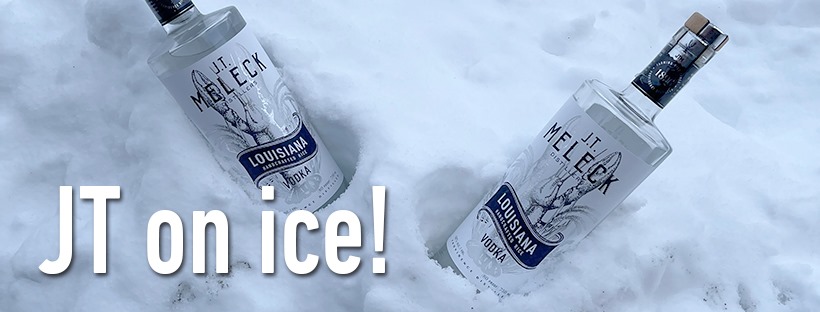
While we don’t typically associate farming with the production of liquor, Mike explained that prior to Prohibition, the majority of distilleries were located on farms as a way to convert leftover grains into spirits that have an indefinite shelf life. After the farmer’s family consumed their harvest and fed their animals, they would distill the remainder of the grains and then trade the spirits for goods (and probably enjoy them!!). Prior to Prohibition, there were approximately 10,000 distilleries in America; afterward, only a handful remained as the lucky few who were licensed by the government to sell “medicinal alcohol.” Mike speculates that since rice was only becoming a commercial crop in the U. S. just as Prohibition came to be, there never was an impetus to learn how to distill it.
Our podcast is a treasure trove for budding entrepreneurs who want to learn more about what it takes to build a company for lasting success. Mike discusses the importance of marketing and the importance of offering a unique and different product. He shares his experience in the commodity business where the market determines the value of your product; in starting up JT Meleck, Mike wanted to develop his own brand so that he would have the ability to “enhance its market value beyond just what is contained in the bottle.”
At the start of the COVID-19 shutdown, JT Meleck had an opportunity to pivot its operations to produce an effective hand sanitizer that everyone was clamoring for. The timing was perfect, as Mike was worried about his 65 employees who had been idled at a time when all of their customers were shut down and restaurants were closed. The company utilized its stock of spirits and converted the batch into a product consisting of 80% Alcohol, Glycerin, Hydrogen Peroxide, and purified water.
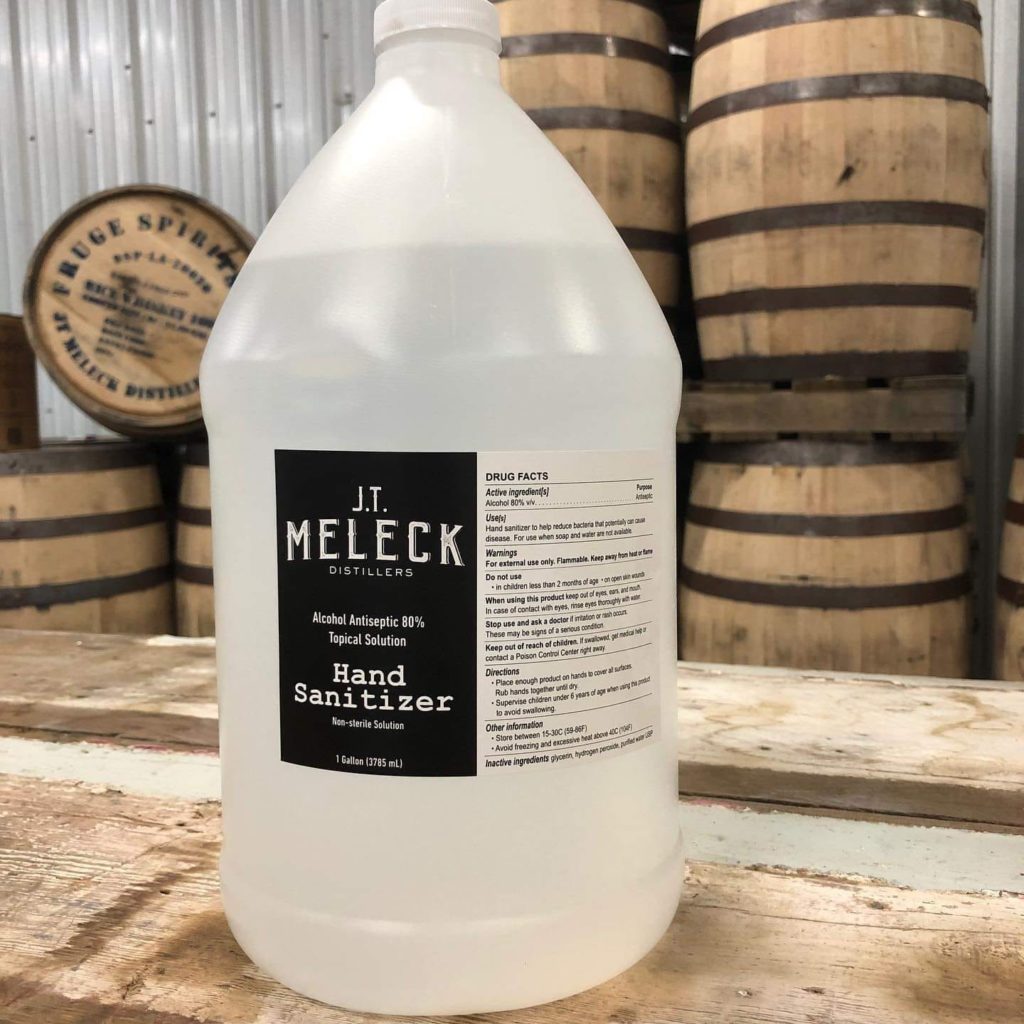
We thank Mike Fruge for sharing his story and wish JT Meleck the best of success. For more information, visit https://www.jtmeleck.net.

